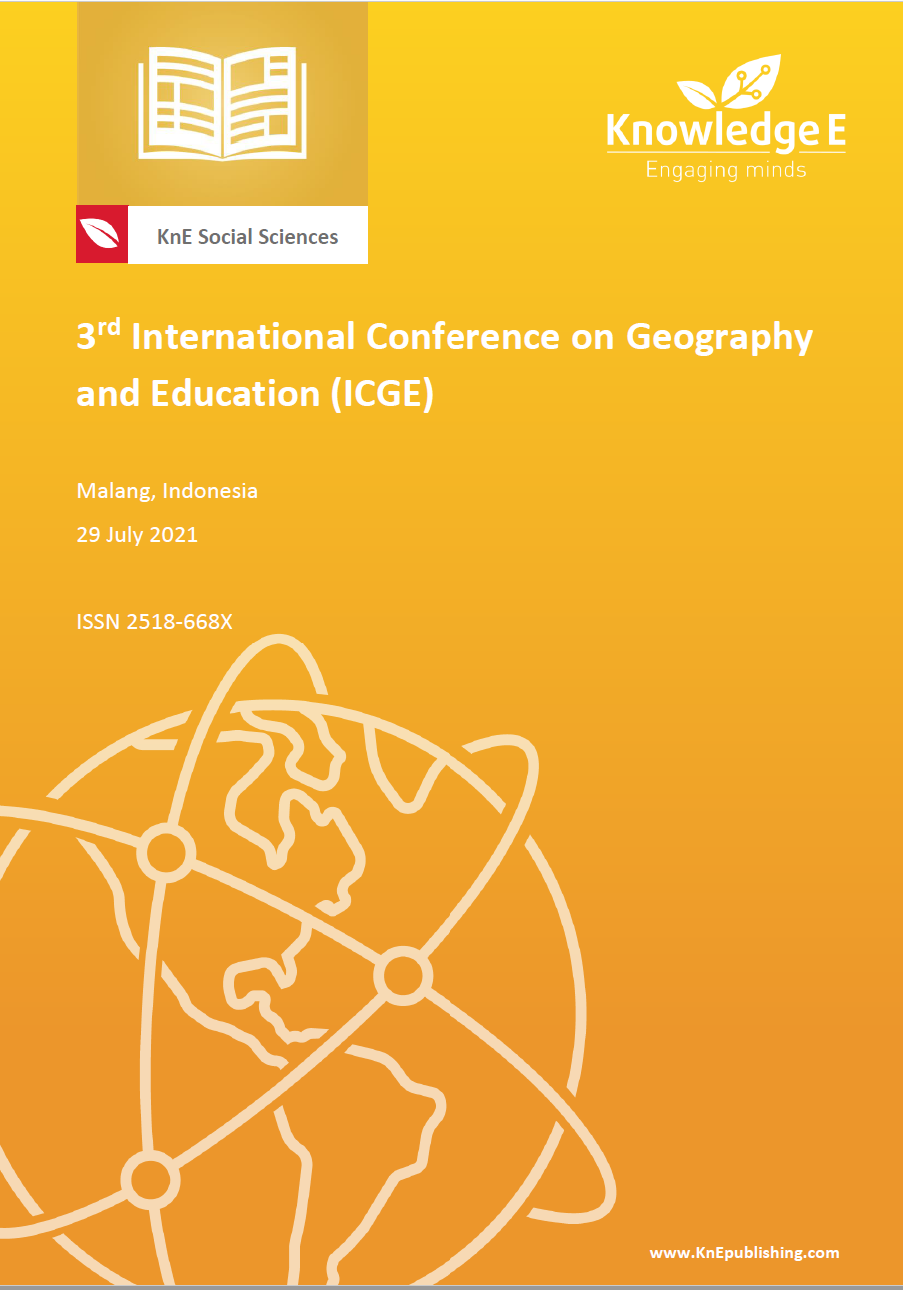Tourism From the Perspective of Geography
DOI:
https://doi.org/10.18502/kss.v7i16.12163Abstract
This article aims to give an overview of tourism based on a literature review of this social phenomenon and the related special interests held by geographers. The main traditional ways that geographers contribute to the study of tourism cover each aspect of tourism and have several geographical implications, including concerning environmental issues, regional development, spatial studies, and historical processes. To understand tourism, we first need to understand what we mean by tourism, which is an important aspect of the topic of greater human mobility. But for a critical, statistical and qualitative understanding, clearer boundaries are needed.
Keywords: tourism, travel motivation, tourist typology, geotourism
References
Williams S, Lew AA. Tourism geography. 3rd ed. Routledge; 2016.
World Travel & Tourism Council. WTTC: Economic impact of travel & tourism 2013 annual update – Summary. Voyages - Guides. United Kingdom: World Travel & Tourism Council 2013. Available from: https://www.youscribe.com/catalogue/livres/loisirs-et-hobbies/voyagesguides/ wttc-economic-impact-of-travel-tourism-2013-annual-update-2313984
Shaw G, Williams AM. Critical issues in tourism: A geographical perspective. United States: Blackwell Publishers; 2002.
Britton S. Tourism, dependency and development: A mode of analysis. Europäische Hochschulschriften 10 (Fremdenverkehr). 1989;11:93–116.
Hall-Lew L, Lew AA. Blackwell companion to tourism. 2nd ed. Oxford: Blackwell; 2009. Speaking heritage: Language, identity and tourism.
Lee TH, Jan FH. Can community-based tourism contribute to sustainable development? Evidence from residents’ perceptions of the sustainability. Tourism Management. 2019;70:368–80.
Lee CK, Back KJ. Examining structural relationships among perceived impact, benefit, and support for casino development based on 4 year longitudinal data. Tourism Management. 2006;27(3):466–80.
United Nation World Tourism Organization. Barometer, UNWTO. World tourism barometer. Spain: United Nation World Tourism Organization; 2020. Available from: https://www.unwto.org/barometer
Franklin A. Tourism: An introduction. 1st ed. United States: SAGE Publications Ltd.; 2004.
Maslow AH. Motivation and personality. United States: Harper & Row; 1954.
Beard JG, Ragheb MG. Measuring leisure motivation. Journal of Leisure Research. 1983;15(3):219–28.
Pearce DG, Butler RW, editors. Tourism research: Critiques and challenges. Tourism Research: Critiques and Challenges. United Kingdom:Taylor & Francis; 1993.
Graburn NH. The anthropology of tourism. Annals of Tourism Research. 1983;10(1):9– 33.
Murphy PE. Tourism: A community approach. United States: Methuen; 1985.
Cohen E. Toward a sociology of international tourism. Social Research. 1972;39:164– 82.
Uriely N. The tourist experience. Annals of Tourism Research. 2005;32(1):199–216.
Lee TH. How recreation involvement, place attachment and conservation commitment affect environmentally responsible behavior. Journal of Sustainable Tourism. 2011;19(7):895–915.
Lee TH, Jan FH, Yang CC. Conceptualizing and measuring environmentally responsible behaviors from the perspective of community-based tourists. Tourism Management. 2013;36:454–68.
MacCannell D. Staged authenticity: Arrangements of social space in tourist settings. American Journal of Sociology. 1973;79(3):589–603.
Coles T. Tourism and leisure: Reading geographies, producing knowledges. Tourism Geographies. 2004;6(2):135–42.
Butler R. Geographical research on tourism, recreation and leisure: Origins, eras and directions. Tourism Geographies. 2004;6(2):143–62.
Ateljevic I. Circuits of tourism: Stepping beyond the “production/consumption” dichotomy. Tourism Geographies. 2000;2(4):369–88.
Wall G, Mathieson A. Tourism: Change, impacts, and opportunities. 2nd ed. United States: Pearson Prentice Hall; 2006.
Lew AA. Authenticity and sense of place in the tourism development experience of older retail districts. Journal of Travel Research. 1989;27(4):15–22.
Robinson M, Boniface P. Tourism and cultural conflicts. United States: Centre of Agriculture and Bioscience International Publisher; 1999
Crouch D. Leisure/tourism geographies: Practices and geographical knowledge. United Kingdom: Routledge; 1999.
Urry J. Sociology beyond societies: Mobilities for the twenty first century (International Library of Sociology). United Kingdom: Routledge; 2000.
Harvey D. The condition of postmodernity: An enquiry into the origins of cultural change. United Kingdom: Blackwell; 1990.
Urry J. Leisure and travel in contemporary societies. London: Sage Publications. 1990.
Franklin A, Crang M. The trouble with tourism and travel theory? Tourist Studies. 2001;1(1):5–22. https://doi.org/10.1177/146879760100100101
Sharpley R. Tourism and sustainable development: Exploring the theoretical divide. Journal of Sustainable Tourism. 2000;8(1):1–19.
Victor B, Middleton TC, Clarke J. Book reviews. Marketing in travel and tourism. Flight to the Sun. 2002;4(1):89–91.

